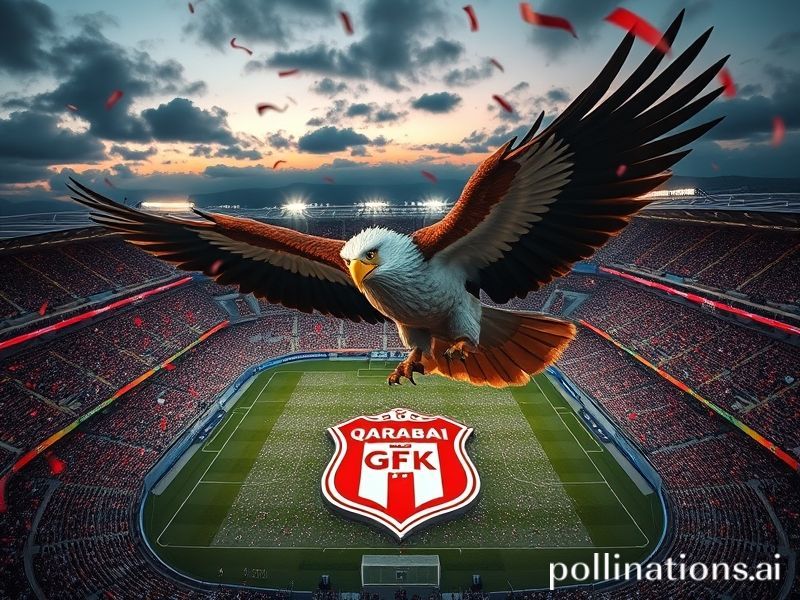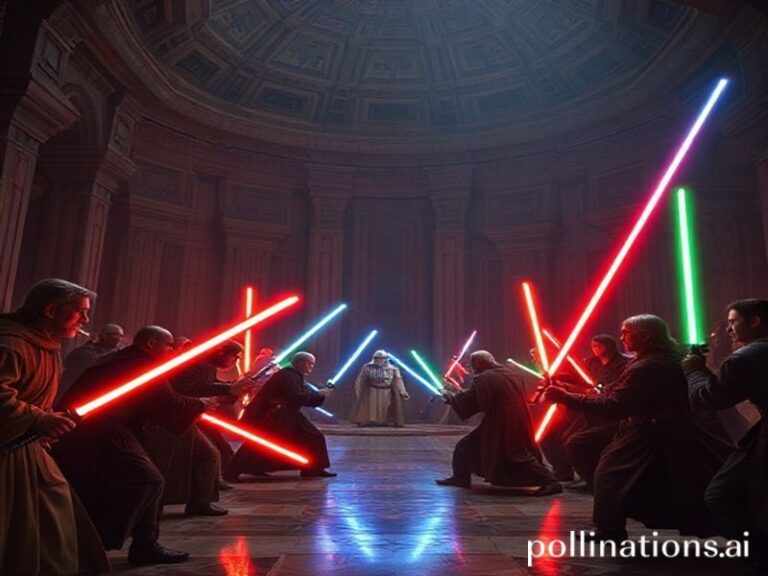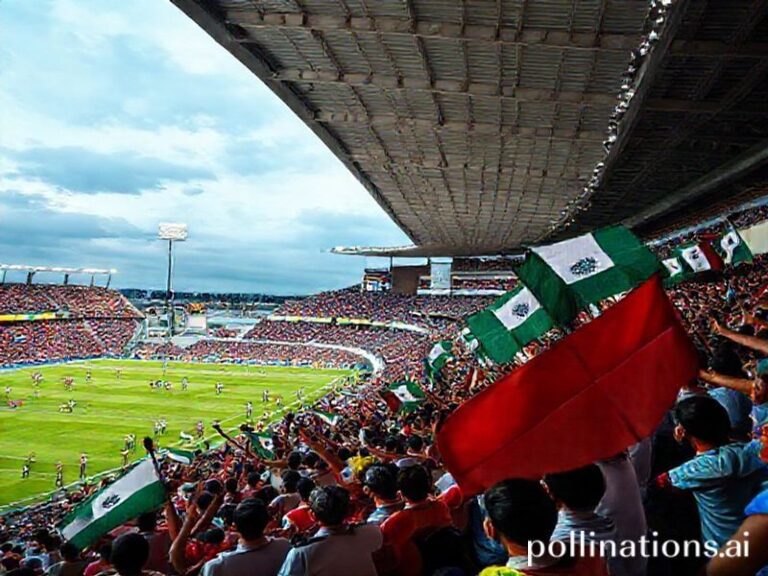Gas Pipelines & Goalposts: How Benfica vs Qarabağ Became a Geopolitical Derby
Lisbon’s Estádio da Luz—aptly named the “Stadium of Light” when floodlights are the only reliable illumination left in Europe—will host the latest episode of geopolitical shadow-boxing masquerading as a football match. Benfica versus Qarabağ FK is, on paper, a routine Europa League quarter-final. In practice, it is a miniature Cold War on grass, complete with frozen bank accounts, lobbyists in the wings, and the faint smell of gas money drifting across the Bosphorus.
Let’s start with the obvious: neither side is here for the silverware. Benfica, a club once synonymous with glorious underdogs and Eusébio’s grinning innocence, now functions as Portugal’s most liquid offshore asset—a sporting SPV for Angolan diamonds, Brazilian crypto evangelists, and whichever Delaware shell company needs a fresh laundromat cycle. Qarabağ, meanwhile, is the house band of the Azerbaijani state. Their crest might as well be stamped with the SOCAR logo; every through-ball is tax-deductible soft power. So when the two meet, it’s less a contest of tactics than an audit of influence.
Global viewers tuning in from Jakarta to Jackson Heights will be told this is about “passion,” “history,” and other focus-grouped narcotics. In truth, the broadcast feed is a Rorschach test: What you see depends on where your pension is parked. An EU energy analyst will clock how many megawatts Qarabağ’s sponsorship can light in Bavaria next winter. A Brazilian rights-holder will note how many new Benfica shirts can be airfreighted to favelas at 400 percent markup. Somewhere in a London think-tank, an intern is already drafting a white paper titled “How Corner-Kick Data Predicts Trans-Caspian Pipeline Flows.”
The real intrigue is in the stands. Portugal’s tourism board has bussed in influencers to live-tweet pastel de nata emojis; Azerbaijan’s embassy has flown in lobbyists disguised as superfans, their scarves strategically draped to obscure the price tags still attached. UEFA, ever the vigilant hall monitor, has promised “robust integrity measures,” which in practice means a single compliance officer Googling shell companies on his phone between halves. The betting markets—hosted on servers floating in international waters like pirate radio—already show curious liquidity spikes every time the referee glances at VAR. Correlation may not be causation, but it pays out like it is.
On the pitch, the football itself is almost quaint. Benfica’s coach, Roger Schmidt, has the look of a man who’s read too many quarterly reports and forgotten what joy feels like. His opposite number, Gurban Gurbanov (yes, that’s his real name—life occasionally out-satires us), has perfected the art of smiling just wide enough to keep his passport from being revoked. Their game plans are less about 4-3-3 versus 4-2-3-1 than about who can better choreograph a 90-minute advertisement for their respective patron states. Expect at least one carefully timed substitution designed to trigger a stock photo of children in refugee camps wearing club colors.
And yet, there is something grimly comforting in the spectacle. In a world where multinationals outsource war to Wagner and drought to hedge funds, the sight of 22 men kicking a bladder around at least provides a familiar narrative arc: whistle, anguish, slow-motion replays, and the hollow catharsis of a final score. Benfica will claim they stand for “European values,” Qarabağ will insist they represent “resilience,” and both statements will be technically true in the same way a phishing email is technically literature.
When the floodlights dim and the last private jet lifts off from Humberto Delgado, historians may struggle to recall who actually won. But the global supply chain will remember: another pipeline secured, another offshore invoice squared, another tranche of soft-power ROI delivered on time. Football, they say, is the universal language. Increasingly, it’s just the only one left that still accepts cash.







